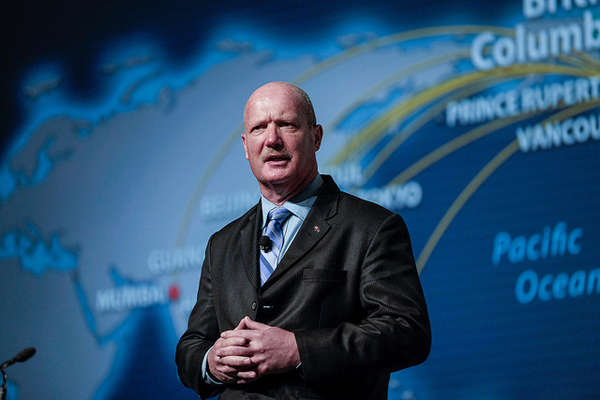Until the economy is stronger, British Columbia will be reluctant to participate in Prime Minister-designate Justin Trudeau's plan to expand the Canada Pension Plan, Finance Minister Mike de Jong told The Tyee.
"Our position hasn't changed around the need to be cautious given the fragility of the economic recovery that's underway," de Jong said. "But the federal government may have some thoughts, and I look forward to hearing them."
Several provinces and the Canadian Labour Congress have in recent years promoted expanding the CPP to better support middle-income earners in retirement. That included B.C. in 2009, when then finance minister Colin Hansen said the economic crisis had made it clear there was an urgent need for a national approach.
The Conservative government quashed that proposal, instead preferring options like pooled registered pension plans that would be voluntary for employees and their employers, an approach that critics say does little to help people who are already saving too little for retirement in existing voluntary vehicles like RRSPs and tax free savings accounts.
In the recent election, Conservative leader Stephen Harper spoke against increasing the CPP, which is mandatory and covers all workers, characterizing it as a payroll tax.
Libs vowed to enhance CPP
The federal Liberal party, however, promised in its election platform that it would "work with the provinces and territories, workers, employers, and retiree organizations to enhance the Canada Pension Plan."
But B.C. may now be a less-than-enthusiastic partner in pension reform. "We'll have a look at what, if anything, the new government once they've been sworn in has to say about it," de Jong said.
The province remains willing to consider proposals, but there's a question of timing, he said. For the past three years he's advocated for reaching an agreement on how strong the economy would need to be before any changes kicked in, de Jong said.
Looking at increasing CPP contributions should depend on the strength of the economy, de Jong said. "I don't think we're there yet, and that may well be the subject of a conversation at a finance ministers meeting to come," he said. "It has made for interesting and vigorous debate in the past... and I'm sure it will again in the future."
Ontario moves ahead with plan
Meanwhile, Canada's largest province by population is moving ahead on its own with federal support.
Earlier this week, Trudeau reportedly told Ontario Premier Kathleen Wynne that he would instruct federal officials to work with the province on the proposed Ontario Retirement Pension Plan, reversing the outgoing Conservative government's position.
The ORPP is designed to be compatible with any future increases to the CPP, but Wynne has previously said she would prefer her province to participate in an expanded national plan that would make the Ontario plan unnecessary.
"I'm not drawn to the Ontario approach of creating a parallel provincial scheme," de Jong said, though he acknowledged that B.C. is one of a few provinces to pass legislation to allow the voluntary pooled registered pension plans the Conservative government championed. The legislation has not yet been brought into force, and so far there are no participants.
De Jong said he believes pooled pensions will eventually get used. "Everyone's motivated by the same concern to ensure that Canadians are taking reasonable steps and have a range of tools they can use to save for their own retirement years."
Carole James, the B.C. NDP finance critic, said it makes sense to expand the CPP since it is universal, is large enough to benefit from economies of scale, and allows people to know ahead of time what level of benefits to expect. "There's an infrastructure there already," she said.
Pensions are particularly important in a province like B.C. where people face a comparatively high cost of living and carry high levels of personal debt, she said. The provincial government needs to advocate in national discussions for a mandatory program that covers all workers, she said. ![]()
Read more: Labour + Industry, BC Politics
















Tyee Commenting Guidelines
Comments that violate guidelines risk being deleted, and violations may result in a temporary or permanent user ban. Maintain the spirit of good conversation to stay in the discussion.
*Please note The Tyee is not a forum for spreading misinformation about COVID-19, denying its existence or minimizing its risk to public health.
Do:
Do not: